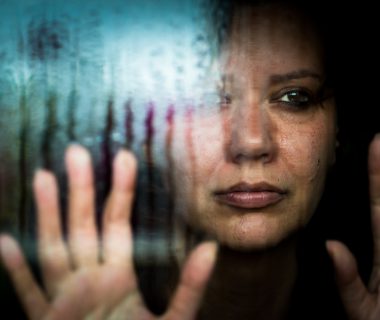The Covid-19 pandemic has certainly affected everyone in different ways, with vulnerable populations often being hit particularly hard. Nowhere is this more apparent than for victims of domestic abuse.
Before the pandemic, one in every three women experienced domestic abuse, as well as one in every four men. However, the lockdown or shelter-in-place orders put in place by local and state governments starting in March 2020 left many trapped with their abusers.
Increased Emotions
Fear of the coronavirus and feelings about stay-at-home or other restrictions can lead to higher anxiety, stress, anger and other negative emotions. These stressors may also be intensified if people are worried about financial security, their kids’ schooling, or being unable to see family and friends as well as an overall lack of social interaction outside the home. These negative emotions can boil over and result in more abuse.
Decreased Access to Help
In Illinois, intimate partner violence and many domestic support hotlines saw increases in both calls and texts for help. At one point during the pandemic, calls were up 32 percent from previous years. Other reports show that texts for assistance increased by 3000 percent. However, many shelters or other respite houses have had to limit intake or services, with these limitations likely stemming from lockdown rules or a decrease in funding. While some shelters turned to hotels for backup rooms to handle this increase, the net result is that if a victim of domestic abuse is actually able to seek help, it may be difficult to find somewhere to go.
While some hotlines or reporting centers are showing the increases in domestic abuse reporting referenced above, others are actually reporting a decrease. One theory on why such calls have decreased is because the victims cannot separate themselves or get to a safe place from their abusers to report the abuse or call for help. In addition, many children are remote learning from home, which prevents teachers and school administrators from noticing and reporting suspected abuse.
Financial Uncertainty
Unemployment in the U.S. increased by 14 million from February to May 2020. It is estimated that 54 million people in the U.S. will face food insecurity because of the pandemic and subsequent lockdowns and restrictions. This type of uncertainty has forced many abuse victims to stay with or move back in with their abusers due to financial issues, thereby worsening their situations.
Get Help for Domestic Abuse
There is a way to receive help or assistance from the court system if you are the victim of domestic abuse. The Illinois Domestic Violence Act allows abuse victims to request an Order of Protection. An Order of Protection can grant a stay-away order to the victim of abuse, physical care of shared children, exclusive right of occupancy of a residence or other remedies. The Domestic Violence Act protects not only physical abuse victims, but also victims of “harassment, intimidation of a dependent, and interference with personal liberty or willful deprivation.” The Domestic Violence Act even provides support for animals, giving the option for the victim of the abuse to petition the court for exclusive custody of any family pets.
While some Illinois courts are open only to in-person appearances for emergencies, requesting an Emergency Order of Protection may be such a situation depending on the county’s guidelines. Under the Act you may be able to obtain an Emergency Order of Protection without alerting your abuser of the process (also called ex parte), if you believe that notifying the abuser prior to taking such legal actions may increase your risk of harm. An Emergency Order of Protection can last up to 21 days. At the expiration of the Emergency Order of Protection, if you wish to pursue a longer-lasting form of relief, you can ask for a hearing to receive a Plenary Order of Protection, which can be in effect for up to two years.
If you are experiencing abuse in your household or know someone who is, please reach out for help immediately. A lawyer who specializes in family law can assist victims of domestic abuse in obtaining an Order of Protection. Conversations with a lawyer are privileged, meaning that your lawyer will not disclose what you tell him or her, particularly to your abuser, if you or someone you know is in a domestic abuse situation. Please reach out to Davis Friedman if you or someone you know needs assistance with a domestic violence situation. Our attorneys are experienced in obtaining Orders of Protection, including Emergency Orders, and can help minimize the risk of further harm to victims of domestic violence.
